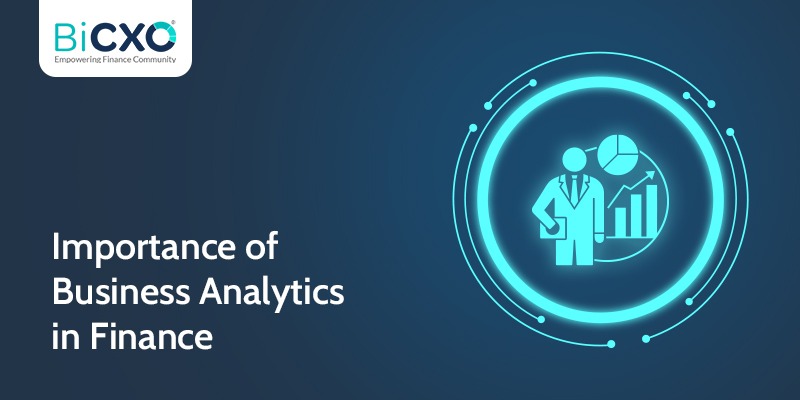
In today’s rapidly evolving business landscape, data-driven decision-making is no longer a luxury but a necessity. Corporate finance departments, once solely focused on managing cash flow, financial statements, and investments, have now expanded their roles into more strategic functions. Finance and business analytics have emerged as a game-changing tool in this transformation, empowering corporate finance teams to make more informed decisions, future financial outcomes, and ultimately drive company growth.
Contents:
- The Role of Business Analytics in Corporate Finance
- How Business Analytics Transforms Corporate Finance
- Case Study 1: Rapid Reporting, Stress Reduction, and Enhanced Decision-Making
- Case Study 2: Enhanced Planning and Accountability
- Conclusion: Business Analytics as a Driving Force in Corporate Finance
The fusion of finance and business analytics enables organizations to harness data and apply it to every aspect of their operations. This integration provides insights into revenue streams, cost drivers, investment opportunities, and risk management, elevating corporate finance to a new level of effectiveness and strategic importance. In this blog, we will explore the critical role of finance and business analytics in corporate finance and showcase how technology can revolutionize financial management in companies.
The Role of Business Analytics in Corporate Finance
Business analytics refers to the practice of using data, statistical models, and technology to analyse financial and operational information. In the realm of corporate finance, business analytics plays a pivotal role in optimizing performance, enhancing efficiency, and driving strategic initiatives. The key benefits of finance and business analytics in corporate finance include:
- Data-Driven Decision-Making: Business analytics allows finance teams to base decisions on real-time data rather than gut feelings or outdated reports. By analyzing past performance and future trends, finance teams can make more accurate and timely decisions.
- Improved Financial Forecasting: Using advanced analytics, companies can create more accurate cash flow forecasts, better manage working capital, and improve liquidity planning. These capabilities are essential for minimizing financial risks and ensuring that the business has enough capital to meet its obligations.
- Performance Measurement: Corporate finance departments can track key performance indicators (KPIs) in real-time, allowing them to identify areas for improvement. Whether it’s monitoring revenue growth, profit margins, or return on investment (ROI), business analytics enables continuous performance assessment.
- Cost Management: Business analytics helps companies identify inefficiencies, cut unnecessary costs, and optimize resource allocation. Finance teams can use this insight to streamline operations, maximize profitability, and enhance financial performance.
- Risk Management: Analytics enables finance departments to anticipate risks before they occur. By analyzing historical data and identifying patterns, businesses can develop risk mitigation strategies to avoid potential pitfalls.
How Business Analytics Transforms Corporate Finance
In corporate finance, the integration of finance and business analytics can provide companies with actionable insights that shape long-term strategy and enhance day-to-day decision-making. For instance, companies can utilize analytics to determine which investments will yield the highest returns, identify areas of wasteful spending, or forecast future financial needs. Financial consolidation software also plays a key role in simplifying complex financial processes, ensuring accuracy, and improving decision-making.
Business analytics offers a more sophisticated approach to problem-solving. Finance professionals can now break down complex financial challenges into digestible insights and use modelling to plan for various scenarios. This holistic approach enables companies to build a stronger financial foundation, be more competitive in the market, and foster growth.
Case Study 1: Rapid Reporting, Stress Reduction, and Enhanced Decision-Making
Let’s look at an example of how a robust FP&A tool transformed a company’s corporate finance function through business analytics.
- Rapid Reporting: The finance team struggled with manual report generation, taking days or even weeks to compile accurate reports. After automating the process, the company achieved the remarkable feat of reports within minutes of closing their books. This monumental reduction in report generation time was a game-changer, giving the company immediate access to financial insights that could drive swift decision-making.
- Stress Reduction: Traditionally, manual reconciliations and consolidations took the finance team between 18 to 21 days to complete. These labour-intensive tasks created immense pressure, especially during fiscal close periods. However, with technology automation, these tasks were condensed into a matter of minutes, drastically reducing stress on the finance team and allowing them to focus on more strategic activities.
- Enhanced Decision-Making: Once the reporting process was streamlined, divisional leaders had access to reports almost immediately after book closure. This rapid availability of financial data gave them precious time to analyse the information and devise actionable strategies. The agility in decision-making, coupled with real-time insights, significantly impacted the company’s bottom line. With key performance metrics at their fingertips, corporate finance leaders were able to optimize cash flow management, investment decisions, and operational efficiencies.
Case Study 2: Enhanced Planning and Accountability
Business analytics also enhances visibility, accountability, and transparency in corporate finance, particularly in the planning process. Here’s how technology enabled a company to transform its financial planning process.
- Visibility in the Planning Process: With business analytics capabilities, project managers gained full visibility into the planning process. This newfound transparency enabled them to make informed decisions and provided a clearer understanding of resource allocation, budget constraints, and financial forecasts.
- Accelerated Approvals: The company had long faced delays due to a cumbersome manual approval process. An automated approval process significantly reduced delays and ensured that financial plans were reviewed and approved in a timely manner. As a result, the company could accelerate decision-making and respond to changes in the market more effectively.
- Version Control: One of the significant challenges the company faced in its planning process was maintaining accuracy in its documents. With the planning tool, the company introduced version control, ensuring that all stakeholders had access to the latest and most accurate planning documents. This feature not only improved accuracy but also reduced confusion and errors during the planning phase.
- Audit Trails: In addition to version control, audit trails created clear transparency into who made the most recent updates to financial plans. Whether the update was made by a project manager, finance user, or senior management, the audit trail ensured accountability and traceability, key factors in maintaining financial integrity.
Conclusion: Business Analytics as a Driving Force in Corporate Finance
In today’s complex business environment, corporate finance cannot thrive without leveraging finance and business analytics. By integrating advanced analytics and financial consolidation software into their financial processes, companies can unlock insights that drive profitability, improve decision-making, and optimize operational efficiency. Business analytics provides a comprehensive view of the business, enabling finance teams to measure performance, predict future outcomes, and mitigate risks.

